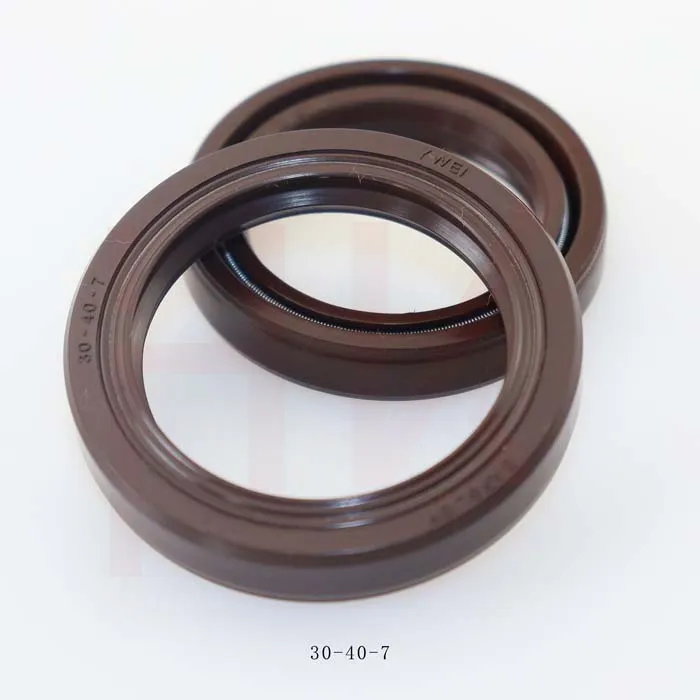12 月 . 03, 2024 17:02 Back to list
Selecting the Right Industrial Oil Seals for Optimal Performance and Longevity
Understanding Industrial Oil Seals Their Importance and Applications
Industrial oil seals are critical components in various machinery and equipment, playing a pivotal role in ensuring their efficient operation. Designed to prevent the leakage of lubricants and the ingress of contaminants, oil seals are essential for maintaining the integrity and longevity of rotating shafts. In this article, we will explore the significance of industrial oil seals, their types, materials, applications, and maintenance practices.
What are Industrial Oil Seals?
Industrial oil seals, also known as shaft seals or rotary seals, are used to seal the junction between a stationary component and a rotating shaft. Their primary function is to contain lubricants within assemblies while preventing external contaminants such as dust, dirt, and moisture from entering the system. This protective barrier is essential for machinery that operates under various environmental conditions, ensuring optimal performance and preventing costly breakdowns.
Types of Oil Seals
There are several types of oil seals, each designed for specific applications
1. Lip Seals These are the most common type and consist of a flexible lip that makes contact with the shaft. The design allows for a tight seal that minimizes leakage while accommodating slight shaft misalignments.
2. V-Rings These seals provide shaft sealing in horizontal applications and are often used in combination with other seals. They create a barrier using the inherent elasticity and shape of the rubber, making them effective against dust and debris.
3. U-Cups Shaped like a 'U', these seals are often used in hydraulic applications. They provide excellent sealing capability under pressure and are suitable for dynamic and static sealing applications.
4. Double-Lip Seals These offer enhanced sealing performance by having two sealing lips that provide additional protection against leakage and contamination.
Materials Used in Oil Seals
The performance of industrial oil seals largely depends on the materials used in their construction. Common materials include
- Nitrile Rubber (NBR) Known for its excellent resistance to petroleum-based oils and fuels, NBR is the most widely used material for oil seals
. It offers good durability and flexibility.industrial oil seals

- Fluoroelastomer (FKM) This material is preferred for applications involving high temperatures and aggressive chemicals. Fluoroelastomers exhibit superior thermal stability and chemical resistance.
- Silicone Used in applications where extreme temperatures are present, silicone oil seals are known for their flexibility and resistance to environmental factors.
- Polyurethane Often used in heavy-duty applications, polyurethane seals are extremely wear-resistant and suitable for both dynamic and static sealing.
Applications of Industrial Oil Seals
Industrial oil seals are utilized in a wide range of applications across various industries, including
- Automotive Oil seals are vital in engines, transmissions, and differentials, where they ensure proper lubricant retention and prevent leaks.
- Manufacturing In manufacturing equipment such as lathes, mills, and drills, oil seals are essential for maintaining lubrication and extending the lifespan of machines.
- Hydraulics and Pneumatics Oil seals play a crucial role in hydraulic cylinders and pneumatic systems, where they help maintain pressure and prevent fluid loss.
- Aerospace In the aerospace industry, oil seals are employed in gearboxes and engines, where reliability and performance under extreme conditions are critical.
Maintenance and Replacement
Regular inspection and maintenance of oil seals are crucial for preventing failures. Signs of wear, such as leakage or visible damage, should prompt immediate inspection and potential replacement. Proper installation and selection of the right seal for the specific application can significantly enhance the lifespan of both the seal and the equipment.
In conclusion, industrial oil seals are indispensable components that ensure the proper functioning and longevity of machinery across various sectors. By understanding their types, materials, applications, and maintenance requirements, industries can optimize their operations and minimize downtime caused by seal-related failures.
-
The Power of Advanced Sealing: High-Pressure Solutions for Modern Machinery
NewsOct.29,2024
-
Optimizing Machinery with High-Performance Oil Seals
NewsOct.29,2024
-
Maximizing Machinery Efficiency with Advanced Oil Seals
NewsOct.29,2024
-
Ensuring Equipment Longevity with Quality Oil Seals
NewsOct.29,2024
-
Enhance Equipment Performance with Quality Oil Seals
NewsOct.29,2024
-
Custom Oil Seals for Specialized Machinery Needs
NewsOct.29,2024
-
The Role of Wiper Seals in Dust Sealing and Oil Protection
NewsOct.20,2024
Products categories
















